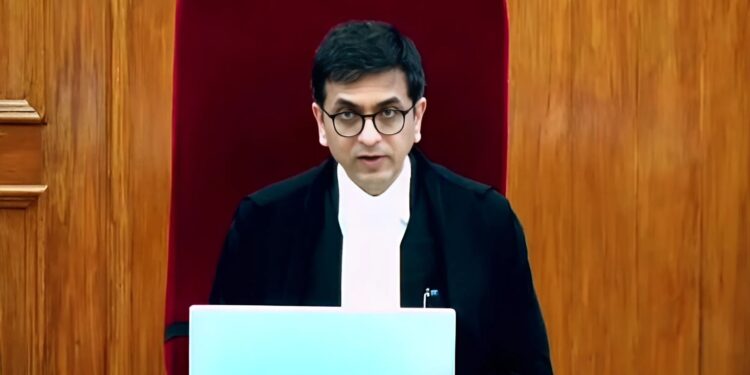CJI DY Chandrachud elaborated on the importance of maintaining a clear distinction between judicial independence and the administrative collaboration necessary between the Judiciary and Executive. At the Loksatta Lecture at Mumbai University on October 26, he clarified that when judicial and executive leaders meet, the agenda is limited to essential administrative discussions, such as court infrastructure, technology integration, and budget allocations, which require Executive support. He firmly noted that these meetings are not for discussing judicial decisions, pending cases, or influencing outcomes, as judicial functions operate independently from administrative coordination.
Addressing misconceptions, CJI Chandrachud highlighted that such interactions are often perceived as a means to broker deals, but this assumption misinterprets the professional, mature nature of these dialogues. He emphasized that a well-functioning democracy depends on cooperation between its branches while respecting their boundaries. “The maturity of our political system is evident,” he stated, “in the deference to judicial independence that political leaders observe, even during essential administrative exchanges.”
Using examples from his tenure as Chief Justice of the Allahabad High Court, the CJI noted that it was routine for the Chief Minister to consult on practical matters, such as building court facilities or planning projects, yet never on judicial work. These interactions ensure that the Judiciary has the necessary infrastructure and resources, all while upholding the division between judicial and administrative roles.
When asked about the consultative process for judicial appointments, CJI Chandrachud emphasized that consensus between the Executive and Judiciary is sought carefully and respectfully. He described this process as another demonstration of maturity, where objections to judicial candidates are openly discussed with the law minister to assess their validity and seek a constructive resolution. This dialogue, he said, is essential to maintain a balanced approach in appointments, ensuring transparency and accountability.
The CJI also addressed critiques of democratic institutions, noting that suggestions for improvement should not be seen as indicators of dysfunction. He argued that institutions, like the Judiciary, have evolved over 75 years and continue to grow, adapt, and strengthen with time. He emphasized that while every institution has areas for enhancement, such potential should inspire constructive reform rather than a perception of failure. “Our institutions are resilient and capable of adaptation,” he stated, underscoring that criticism should foster growth without undermining trust in these democratic pillars.

















